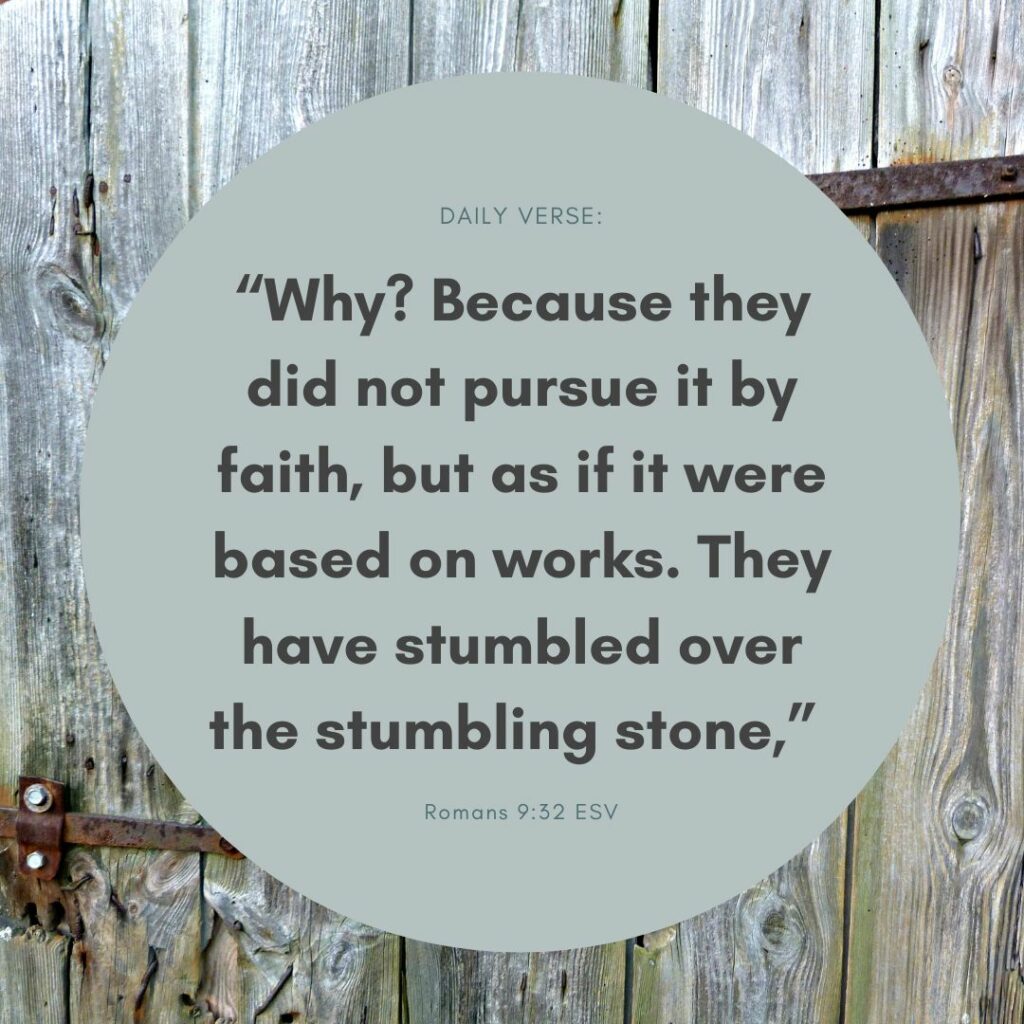2 minute read.

Daily Reading: 2 Chronicles 17:1-18:34 ESV, Romans 9:25-10:13 ESV, Psalm 20:1-9 ESV, Proverbs 20:2-3 ESV
Daily Verse: “Why? Because they did not pursue it by faith, but as if it were based on works. They have stumbled over the stumbling stone,” (Romans 9:32 ESV)
PROSKOPTO (4350): “Of Israel in regard to Christ, whose Person, teaching and atoning death, and the gospel relating thereto, were contrary to all their ideas as to the means of righteousness before God, Rom 9:32.”[i]
Contrary ideas.
Jesus’ ministry on earth introduced contrary ideas of God’s righteousness. Before Christ, the law defined if one could stand before God blameless. But with Jesus, He makes us able to stand before God with no sin.
Without a doubt, we will all stumble over the law. The white lies you tell still count as falling short of the mark. Cheating on taxes means cheating on God. Indulging in food and drink defines gluttony. Jewish law contains 613 commandments people must follow to remain blameless before God. No one can do it, only Jesus.
Solid foundation.
Following Jesus creates a solid foundation for you to walk. You become righteous because of Christ. God knows we need a Savior because we can’t uphold the laws. Therefore, Jesus came to do what we can’t do for ourselves.
Accept your sinful nature. Stop fighting the natural and accept the supernatural. Allow Jesus to cleanse you from your sin, placing it at the foot of the cross. When you stumble, Christ helps you to your feet.
Jesus gives you stability in a fallen world. The culture’s constant state of change makes it difficult to find solid ground, but God’s unchanging character provides us with a place to stand. Shifting sands cause unsteady feet, but the rock of Jesus doesn’t move.
Become righteous before God by placing your faith in Jesus. Let Him guide you along the path of righteousness, one step at a time. With Jesus, you will walk on a firm foundation, no longer stumbling over laws you can’t keep.
[i] Strong, J., & Strong, J. (2010). The New Strong’s expanded exhaustive concordance of the Bible. Greek Dictionary of the New Testament (p. 214) Thomas Nelson

